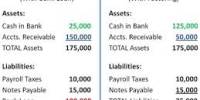Proxy
A proxy is an agent legally authorized to act on behalf of another party or a format that allows an investor to vote without being physically present at the meeting. He is a voting agent. If the articles provide, a member of a joint-stock company competent to vote may excise his voting right in a meeting either personally or through some representative duly appointed for the purpose. Such a voting agent is called a proxy. He is an agent legally authorized to act on behalf of another party.
Proxy is a written authorization empowering another person to vote or act for the signer, as at a meeting of stockholders. It is a legal document that allows shareholders to give agents the ability to carry out their voting rights. Shareholders not attending a company’s annual general meeting (AGM) may vote their shares by proxy by allowing someone else to cast votes on their behalf, or they may vote by mail. So, it’s a way for shareholders to exercise their voting rights without actually attending a voting meeting. Management ensures ownership interests are fully represented by encouraging shareholders who are unable to attend annual meetings to vote by proxy. The objective is to inform shareholders of the meeting, what matters are up for a vote, and instructions for voting. The proxy statement contains background information so that shareholders can make informed voting decisions.
A Proxy Statement is a packet of documents containing information necessary to make informed votes on issues facing the company. This statement is a document containing the information the Securities and Exchange Commission (SEC) requires companies to provide to shareholders so they can make informed decisions about matters that will be brought up at an annual or special stockholder meeting. Shareholders in corporations have the right to vote on matters such as electing directors, selecting an auditor, approving a merger, or selling the company. Management ensures that ownership interests are fully represented by often encouraging shareholders that are unable to attend annual meetings to vote by proxy. These statements must disclose the company’s voting procedure, nominated candidates for its board of directors, and compensation of directors and executives.
















